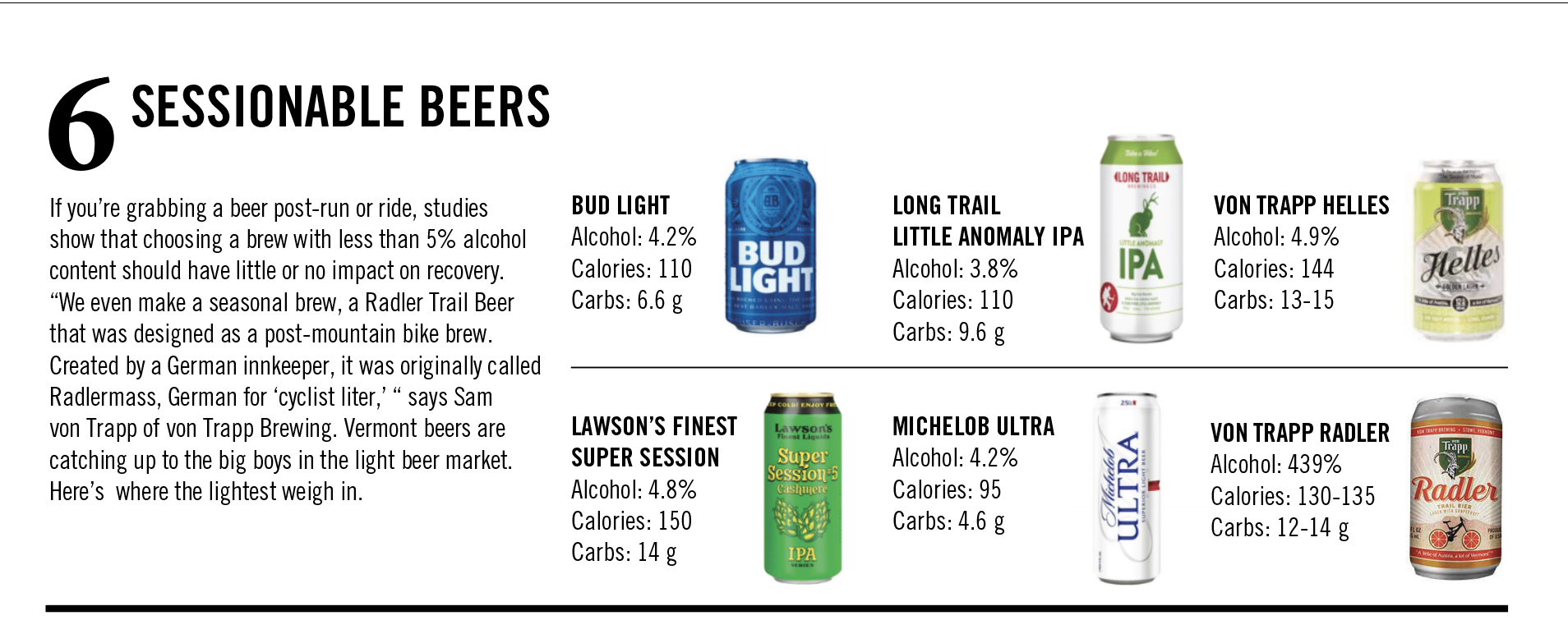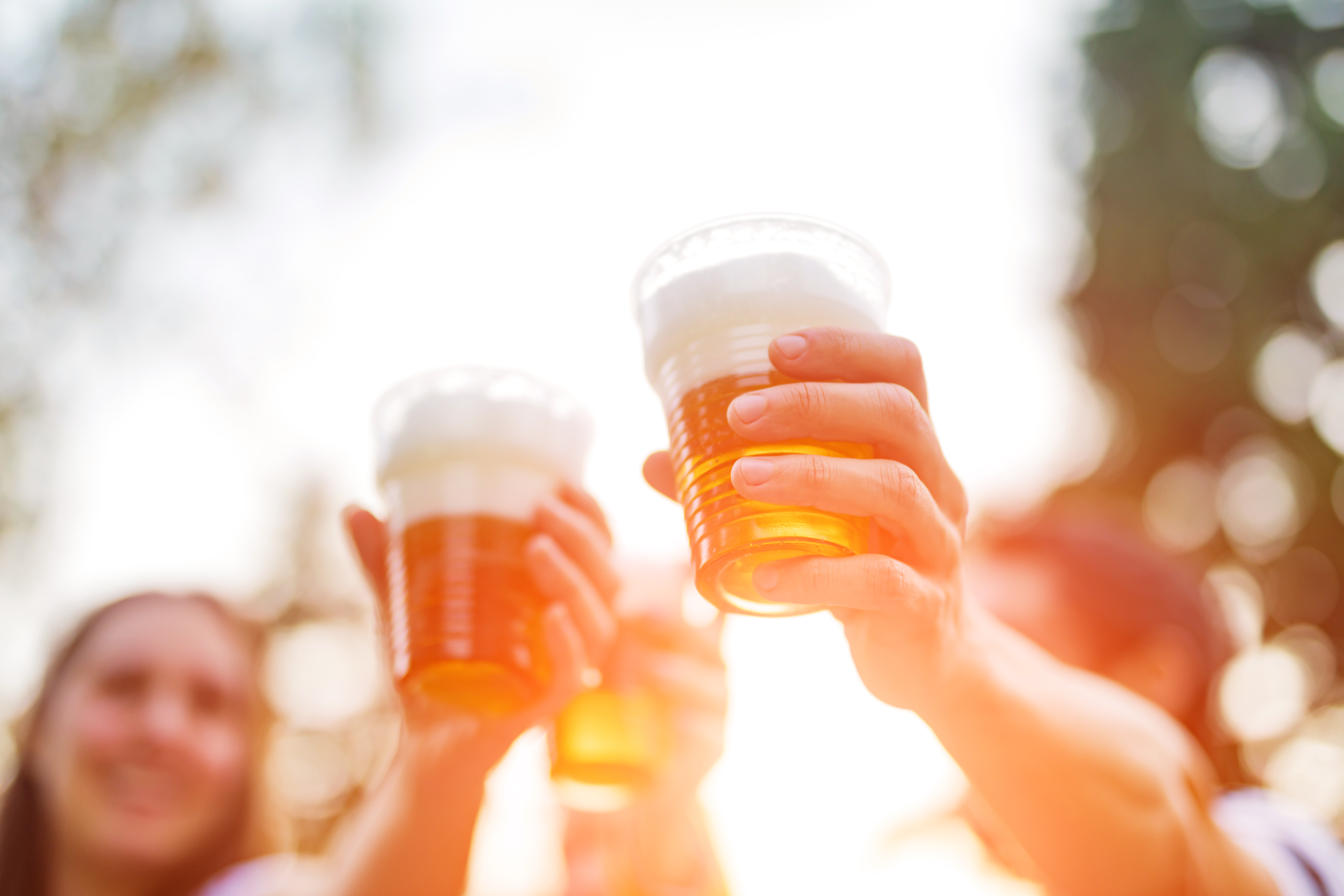The Best Beers To Drink Post-Race
If one were to examine the relationship between exercise and alcohol, “it’s complicated” would be a fitting description. It’s hard to say exactly when exercise and alcohol became so intricately linked.
The earliest evidence of humans consuming alcohol dates all the way back to 7,000 B.C., but organized athletics were still a long way off. The first modern Olympic Games weren’t held until 1896. It was at this inaugural Olympics that the relationship between alcohol and exercise truly blossomed. Greek marathoner, Spyridon Louis, was trailing behind his competitor when he famously downed a glass of Cognac with just six miles to go. Upon finishing his drink, Spyridon resumed running, going on to win gold.
The love affair between alcohol and exercise became official as athletes tried to replicate this success in future Olympic Games and other competitions. The purported performance-enhancing effects of consuming alcohol during exercise has since been debunked, but as opposed to a clean break, the relationship has simply evolved.
Today, beer has become the go-to beverage for many athletes after exercise. Seemingly every bike and running race promises a free finish line beer to celebrate a job well done. In fact, multiple surveys have shown that those who exercise regularly are also more likely to drink. Why these two seemingly paradoxical behaviors go together is unclear.
As satisfying as cracking open a cold beer post-race might be, how can we reconcile a healthy activity like exercise with one that is arguably less so?
Imbibers often make a case that beer can be just as hydrating as water and the carbs can replenish the carbohydrates burned off during exercise. However, just as many contend that the opposite is true. This leaves many wondering, does that post-ride beer help or hinder recovery? To evaluate the competing views consider the three primary components for maximum recovery after exercise; hydration, glycogen replenishment and muscle repair.
Hydration
A top priority post-workout is rehydrating. During exercise, the body can lose as much as 3 to 4 ounces of fluid per hour through sweat and respiration. Replacing those fluids as well as the electrolytes lost in sweat is critical to allow for proper recovery. Can a beer provide the fluid and electrolytes the body so desperately needs? Well, that all depends…
Alcohol has long been established as a diuretic, meaning that consumption of alcohol increases urine output, thus having a dehydrating effect on the body. The extent of this diuretic effect is contingent upon a number of factors, the most important of which is the alcohol content of the beverage consumed. Studies examining the effect of alcohol on fluid balance after exercise have found that beverages with a lower alcohol content (≤4%) are able to rehydrate on par with alcohol-free beverages. However, as alcohol content creeps up to that of a typical beer, about 5% for an average beer, urine output increases resulting in a dehydrating effect. In other words, your going to be losing more water than you consume.
The other factor to consider in evaluating the dehydrating effects of alcohol is volume. There’s a big difference between drinking a pint of beer and polishing off a six-pack. These aforementioned studies (the ones indicating that beers with a higher alcohol content dehydrated subjects) were rather liberal with the volume of the post-exercise brews. Subjects in those studies consumed an average of about 4 pints of beer. Subsequent studies have shown no significant difference on hydration status after exercise between consuming water and a moderate amount of beer.
Glycogen Replenishment
Much of the energy used to fuel a bout of exercise, particularly higher-intensity activities and endurance exercise, comes from glycogen, the body’s storage form of carbohydrate. The body can store approximately 300 to 500 grams of glycogen in the liver and skeletal muscle, or enough to power about 90 to 120 minutes of continuous aerobic exercise. During exercise, glycogen is broken down into glucose to provide a quick source of energy to the working muscles, thereby depleting these glycogen stores. Replenishing glycogen is a must in order to avoid the side effects of low glycogen levels like fatigue and impaired performance. Fortunately, the body is primed to begin this refueling process after exercise thanks to an enzyme called glycogen synthase.
Glycogen synthase catalyzes the conversion of glucose into glycogen and is highly active after exercise. It just needs one thing to make it happen; carbohydrates. And this is where that post-run or ride beverage or snack becomes critical to allow the body to refuel.
There’s a reason chocolate milk, bagels and bananas are readily handed out after endurance races. It is recommended that athletes consume 1.5 grams of easy-to-digest carbohydrates per one kilogram of body weight immediately after exercise to optimize glycogen replenishment. Simple carbohydrates like those found in refined grains and sugary foods or beverages are ideal to begin the process of restoring glycogen to pre-exercise levels.
So how does beer fit into the picture?
It’s good news, bad news for those who like to imbibe after a tough workout. Let’s start with the good news. A 2003 study in the Journal of Applied Physiology found no evidence that alcohol interferes with glycogen replenishment.
 Before a triumphant “cheers” to your beer being an ideal post-workout option, it’s important to discuss that bit of bad news. Arguably the biggest issue with consuming a beer post-workout in terms of glycogen replenishment doesn’t have anything to do with the alcohol itself, but instead with what that beer might be standing in the way of; a carbohydrate-rich beverage or snack. Contrary to popular belief, beer isn’t high in carbohydrates.
Before a triumphant “cheers” to your beer being an ideal post-workout option, it’s important to discuss that bit of bad news. Arguably the biggest issue with consuming a beer post-workout in terms of glycogen replenishment doesn’t have anything to do with the alcohol itself, but instead with what that beer might be standing in the way of; a carbohydrate-rich beverage or snack. Contrary to popular belief, beer isn’t high in carbohydrates.
A typical 12-ounce beer contains only about 10 grams of carbohydrate. That hardly compares to the approximately 40 grams of carbohydrate in a 12-ounce chocolate milk. Thus, although the alcohol in beer won’t inhibit glycogen synthesis, beer alone won’t provide the necessary carbohydrate to adequately replenish glycogen.
Muscle Repair
There’s a reason your muscles are sore the day after a tough workout. Exercise causes damage to muscle fibers, which in turn allows those muscles to adapt by getting bigger and stronger. Protein provides the building blocks for this repair process. It is recommended that individuals consume 20 to 4
0 grams of protein after exercise to increase muscle protein synthesis. Unfortunately for beer-lovers, the average 12-ounce beer has less than one gram of protein.
To be fair, few would likely argue that beer is a good choice for muscle recovery, but does consuming a beer actually inhibit muscle protein resynthesis?
In 2014, a study looked into exactly that; with athletes completing three stints of exercise after which they consumed protein alone, protein with alcohol, or carbohydrates with alcohol. The results were clear that regardless of whether alcohol was paired with protein or carbs, the consumption of alcohol reduced muscle protein synthesis. However, it is important to note that the amount of alcohol consumed in this study constituted more than just a casual celebratory drink. The study attempted to replicate what would be considered binge drinking, the equivalent of about seven drinks.
Although no studies have been conducted to see if smaller amounts of alcohol consumed after exercise have the same deleterious effect, there is some hope that one beer won’t completely negate the benefits of a tough workout on muscle gains. In 2019, researchers examined the influence of consuming a moderate amount of alcohol (about 5 drinks per week) on muscle mass gain following a high-intensity interval training (HIIT) program. After 10 weeks, all of the subjects experienced increased muscle mass and reduced body fat mass. Most interestingly, these improvements in body composition were the same for those who regularly imbibed and those who did not. It’s important to note that the subjects in this study did not consume alcohol immediately after exercise, which makes it difficult to draw meaningful conclusions about how much one or two beers after exercise will interfere with muscle gains.
It is clear that although beer may not be the best recovery option, it is not necessarily harmful either. Consuming just one or two beers with a lower alcohol content after a carbohydrate and protein-rich meal or snack is the best way to go. Whatever your drink of choice, for better or worse, the relationship between exercise and alcohol will likely endure. After all, it worked for Spyridon Louis
.
Jamie Sheahan is the Director of Nutrition at The Edge in South Burlington. She holds a Master of Science in Dietetics from the University of Vermont, where she serves as an adjunct professor of sports nutrition. Jamie has run over 40 marathons in addition to several ultra marathons.

